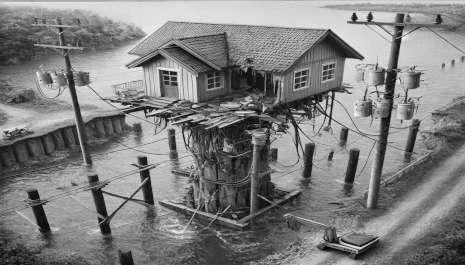How to Fail Your Municipality's Residential Block and Tie Inspection.

By Murray Wennerlund published 12-18-2024 updated 12-18-2024
- Grounding / Bonding at Service Entrance (NEC 250.20)
- Why It Fails: Improper grounding or bonding can lead to electrical shock hazards and improper system performance.
- Common Mistakes: Missing grounding electrode conductor, incorrect bonding jumper installation, or improper connection to the grounding system.
- Service Entrance Wiring Correct Size (NEC 310.15)
- Why It Fails: Incorrect wire size can cause overheating and potential fire hazards.
- Common Mistakes: Using undersized conductors, not following the 83% rule for residential services, or incorrect wire type for the application.
- All Receptacles and Switches Terminated
-
- Why It Fails: Loose or unconnected wiring can lead to electrical failures and safety hazards.
- Common Mistakes: Incomplete connections, loose terminals, or missing wire nuts.
-
- Bonding of Metal Water and Gas Piping (NEC 250.104)
- Why It Fails: Unbonded metal piping can become energized, posing a shock hazard.
- Common Mistakes: Missing bonding jumpers, improper bonding connections, or failure to bond all accessible piping.
- Panel/Disconnect Clearance and Covered (NEC 110.26 and 100.27)
- Why It Fails: Insufficient clearance can hinder safe operation and maintenance.
- Common Mistakes: Obstructed access to panels or disconnects, lack of proper covers, or inadequate working space around electrical equipment.
- Neutrals Isolated in Sub Panel (NEC 408.40)
- Why It Fails: Isolating neutrals can lead to improper grounding and potential electrical hazards.
- Common Mistakes: Missing neutral-ground bond in sub panels, improper wiring, or failure to follow code requirements for neutral connections.

